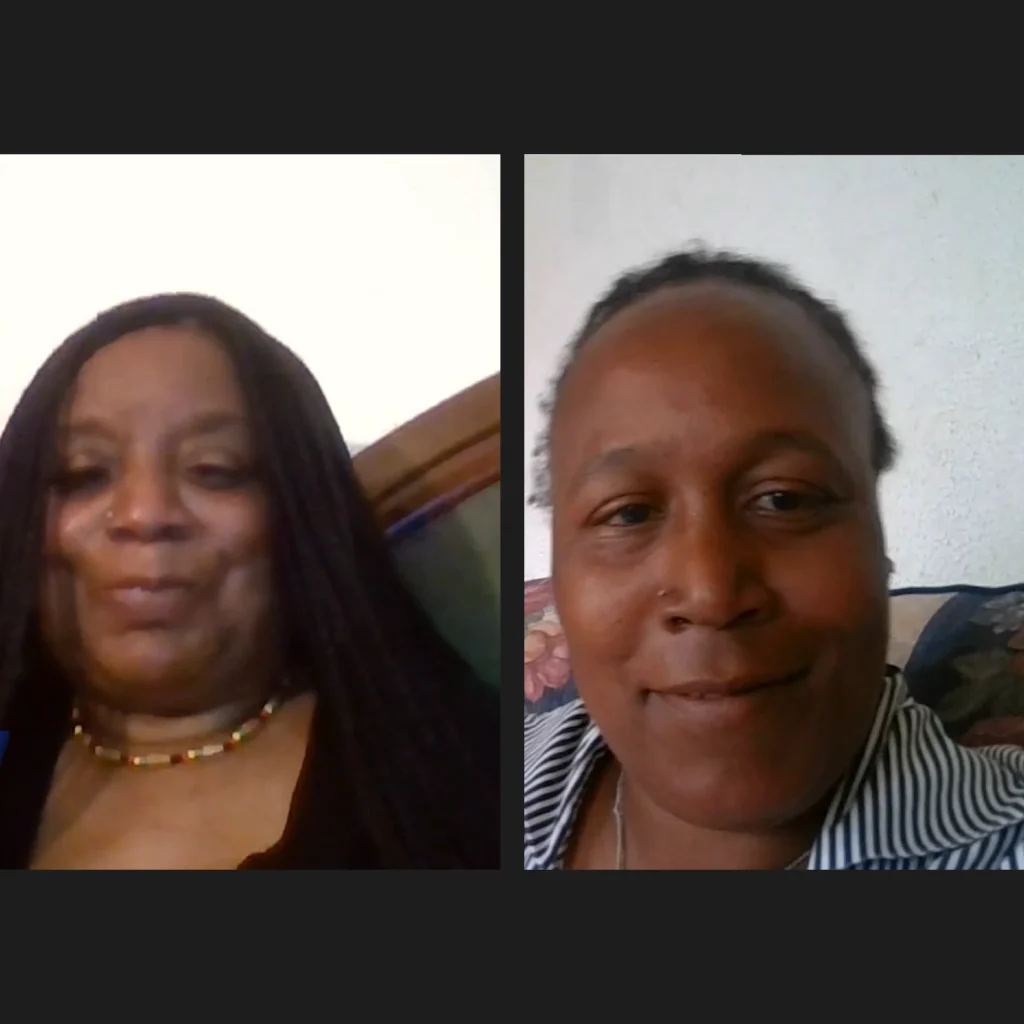Healing Trauma in High Crime Communities: From Gun Violence Survivors to Community Heroes.
Healing from trauma and helping others heal in the high crime community of East St. Louis, Illinois, Skyla Pawnell and Gloria Hicks share their powerful stories of transformation from being victims to community healers.
Skyla lost her son Aaron to gun violence due to a Facebook dispute over a girlfriend. Gloria has witnessed multiple family tragedies including her brother’s murder and nephew’s killing. Together, they respond to shooting scenes and help victims and families navigate the devastating impact of gun violence. They show up when—and where—help is needed most.
Key Insights from This Episode:
• Trauma-informed community response: How survivors become the most effective healers for other trauma victims.
• Fast thinking vs. slow thinking: The psychology behind impulsive gun violence and how community intervention to defuse conflicts can prevent shootings.
• Bridge-building with police: Practical strategies for rebuilding trust between law enforcement and high-crime communities.
• Victim compensation resources: Critical support systems many families don’t know exist.
• Community-based healing: How feeding the homeless and supporting shelters creates pathways to personal healing from trauma.
🎯 Timestamps: 00:00 Introduction: Meet Skyla and Gloria – Community heroes in East St. Louis
02:00 Skyla’s story: Who was Aaron? Dreams cut short by gun violence
04:40 The tragedy: Facebook dispute leads to fatal shooting
09:30 Living with unresolved trauma: Seeing the killer daily
11:20 Gloria’s losses: Multiple family members lost to violence
13:20 Community response failures and finding support elsewhere
16:20 Crime Survivors for Safety and Justice: Connecting families to resources
18:00 From grief to service: Feeding shelters and homeless populations
21:30 POWERFUL MOMENT: Gloria prevents a shooting through community intervention
25:40 Chicago vs. East St. Louis: Different community dynamics
28:30 Police-community relations: Building trust through collaboration
31:30 Why gun violence is declining in East St. Louis
33:40 What communities need: Jobs, housing, and youth programs
37:40 Why they stay: Pride in East St. Louis despite challenges
41:20 Healing through helping: Breaking cycles of revenge
43:20 Host analysis: The science behind community-based violence prevention
💡 Trauma Recovery Strategies Discussed:
• Service as healing: How helping others process their own trauma
• Community accountability: Creating “eyes on the street” to prevent violence
• Immediate crisis response: Showing up at shooting scenes with resources and support
• Long-term relationship building: Moving beyond one-time interventions to sustained community presence
• Youth intervention programs: Working with at-risk teens before they become statistics
🔗 Resources Mentioned:
• Crime Survivors for Safety and Justice (multiple state chapters): https://cssj.org/
• Illinois Attorney General victim compensation (retroactive 5-year eligibility): https://www.illinoisattorneygeneral.gov/safer-communities/supporting-victims-of-crime/crime-victim-compensation/
• Moms Demand Action: https://momsdemandaction.org/
• Book–Unforgiving Places: The Unexpected Origins of American Gun Violence, by Jens Ludwig: https://press.uchicago.edu/ucp/books/book/chicago/U/bo244203115.html
Why This Matters: Research shows gun violence stems primarily from spontaneous reactions during conflicts rather than calculated criminal acts. Gloria’s real-time intervention—stopping a young man from shooting during a street argument—demonstrates how community members can literally save lives by helping people shift from “fast thinking” (impulsive reactions) to “slow thinking” (considering consequences).
Book recommendation: “Unforgiving Places: The Unexpected Origins of American Gun Violence” by Jens Ludwig of the Chicago Crime Lab provides the research foundation supporting community-based approaches like Skyla and Gloria’s work.
Subscribe and share to help these vital voices reach more people working to heal trauma and prevent gun violence in their own communities.
Justice Voices website and blog: https://justicevoices.org
